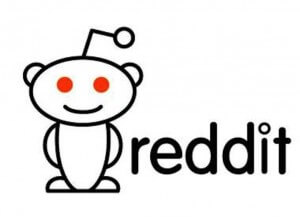 Reddit CEO Steve Huffman has finally spoken publicly about the company’s deeply unpopular API changes that have resulted in some of the most-used third-party reddit apps saying they will be forced to shut down.
Reddit CEO Steve Huffman has finally spoken publicly about the company’s deeply unpopular API changes that have resulted in some of the most-used third-party reddit apps saying they will be forced to shut down.
In an AMA (Ask Me Anything) discussion, Huffman promised improvements to Reddit’s own app, but seemed unwilling to make concessions on pricing and other issues that have rankled the community, Engadget reported.
“Reddit needs to be a self-sustaining business, and to do that, we can no longer subsidize commercial entities that require large-scale data use,” he wrote in his AMA post. “Some apps such as Apollo, Reddit is Fun, and Sync have decided this pricing doesn’t work for their business and will close before pricing goes into effect.”
Engadget also reported that there were a number of topics Huffman didn’t address, including why the company priced its API at a rate that developers say is prohibitively expensive. Huffman also didn’t address the upcoming blackout from thousands of subreddits protesting the API changes. More than 3,000 subreddits have pledged to “go dark” for two days beginning June 12th to protest the changes.
TechCrunch reported that CEO Steve Huffman, aka u/spez on the internet forum site, doubled down on accusations against the developer behind the well-liked third-party app Apollo, which the company had previously accused of operating inefficiently and not being a good “API” user.
According to TechCrunch, Huffman’s AMA confirmed the company has no plans to revise its upcoming API changes. What’s more, Huffman continued his accusations against Apollo, calling out the developer, Christian Selig’s “behavior and communications” as being “all over the place” and saying he couldn’t see Reddit working with the developer further.
Selig had been among the first to highlight Reddit’s new API pricing would effectively make it impossible to continue to operate the Apollo app. He explained that, under the new terms, it would cost him $20 million per year to do so – money the app doesn’t make. This week, Selig announced the app’s last day would be June 30, ahead of the July 1 implementation of the new API pricing.
ArsTechnica reported that Selig wrote, “June 30th will be Apollo’s last day. I’ve talked to a lot of people and come to terms over the last weeks as talks with Reddit have deteriorated to an ugly point.” Selig says that while charging some amount of money for Reddit’s API would be “understandable,” the developer says Reddit’s costs and timelines are just too much to overcome and that “it’s much cheaper for me to simply shut it down.”
This situation reminds me of Twitter, when Elon Musk decided to charge apps thousands of dollars for access to enough data to keep creator’s apps running. According to TIME, it has been speculated that the price was “part of the efforts to stop the company from hemorrhaging money.”
It seems Reddit’s CEO has decided to follow in Elon Musk’s footsteps by including new pricing tiers for third-party app makers, with prices that are likely impossible for the app makers to come up with each month. There is what appears to be a large group of Reddit users who are very much against these types of shenanigans, and I expect many will leave Reddit.

 WhatsApp issued a
WhatsApp issued a  A free app called Amphetamine, which helps keep your Mac awake, was almost removed from the Mac App Store. The reasons why are dubious because the app has been on the Mac App Store since 2014, and has absolutely nothing to do with drugs. In my opinion, Apple didn’t look very carefully at the Amphetamine app before removing it.
A free app called Amphetamine, which helps keep your Mac awake, was almost removed from the Mac App Store. The reasons why are dubious because the app has been on the Mac App Store since 2014, and has absolutely nothing to do with drugs. In my opinion, Apple didn’t look very carefully at the Amphetamine app before removing it. One day after the U.S. Department of Treasury stated that WeChat and TikTok would be
One day after the U.S. Department of Treasury stated that WeChat and TikTok would be  President Trump has issued an executive order requiring ByteDance to divest from its U.S. TikTok business within 90 days,
President Trump has issued an executive order requiring ByteDance to divest from its U.S. TikTok business within 90 days,  What happens when a company is the subject of a presidential executive order? For TikTok, it apparently means it is time to start preparing advertisers for a possible ban of its app in the United States, and to
What happens when a company is the subject of a presidential executive order? For TikTok, it apparently means it is time to start preparing advertisers for a possible ban of its app in the United States, and to